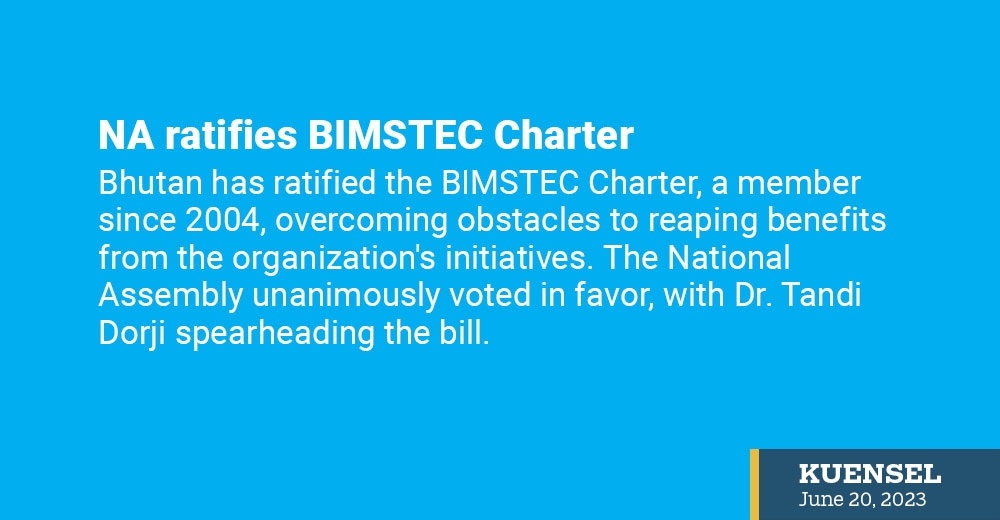Jigmi Wangdi
In a significant move, Bhutan, a member of the Bay of Bengal Initiative for Multi-Sectoral Technical and Economic Cooperation (BIMSTEC) since 2004, has finally ratified the BIMSTEC Charter.
The absence of the Charter had previously hindered the country from reaping major benefits from the organisation’s initiatives. However, on June 13, the National Assembly unanimously voted in favour of the Charter, with all 44 members present supporting its ratification.
Minister for Foreign Relations and External Trade, Dr Tandi Dorji, spearheaded the Bill as the member-in-charge.
With the Charter now ratified, BIMSTEC member countries can engage in discussions and collaborations on various fronts, including free trade agreements, grid connectivity for electricity trade, motor vehicle agreements, and maritime transport.
While the specifics of these collaborations are yet to be finalised, their implementation is expected to boost trade, enhance economic cooperation, and improve connectivity within the BIMSTEC region.
An official from the ministry said that BIMSTEC offers avenues for cooperation in trade, investment, development, environment, climate change, agriculture, food security, and more. The ratification of the Charter by all member states and its enforcement will provide a solid legal foundation for BIMSTEC, establishing a formal framework and clear guidelines for its functioning.
This development is advantageous as it brings clarity to the scope and operations of BIMSTEC as an organisation, the official noted.
For the Charter to come into force, it requires ratification by all member states. To date, four member states have ratified it. The Charter outlines the legal and institutional framework for BIMSTEC, defining the functioning of the intergovernmental regional organisation.
The National Council will now deliberate on the ratified Charter, marking an important step forward in Bhutan’s participation in BIMSTEC and paving the way for enhanced regional cooperation and economic growth.


